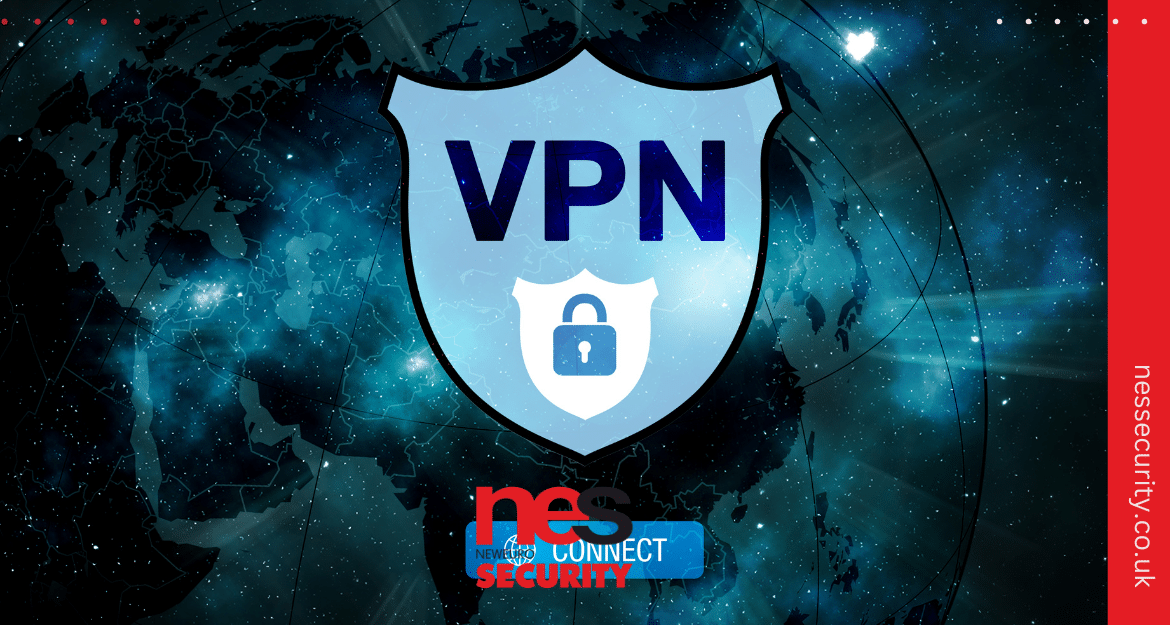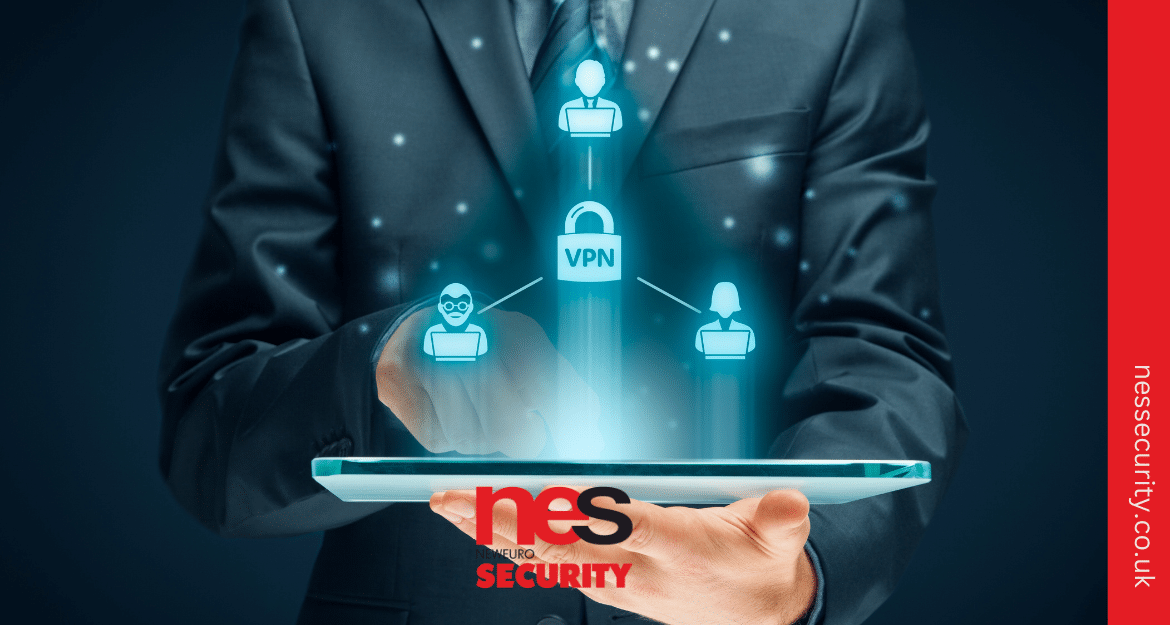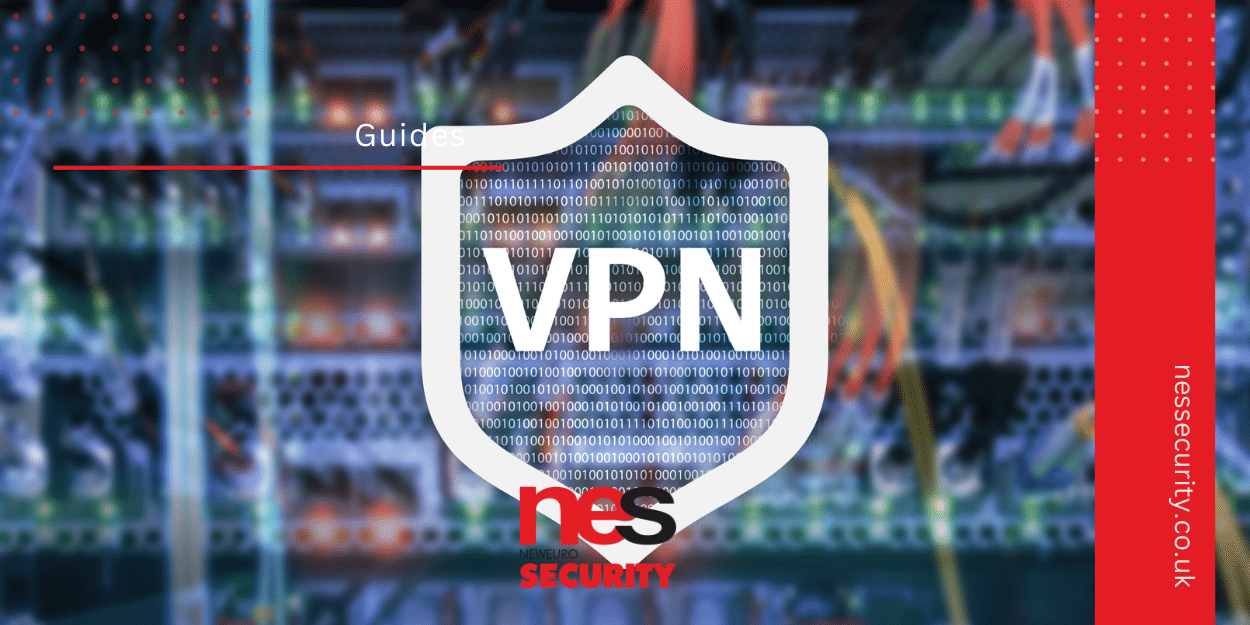In today’s digital age, where remote work is becoming increasingly prevalent, businesses need secure and reliable ways to enable their employees to access company resources from outside the traditional office environment. Virtual Private Networks (VPNs) have emerged as a powerful solution, providing a secure and encrypted tunnel for remote access to corporate networks. In this comprehensive guide, we will explore the world of VPNs, understanding how they work, the advantages they offer, the different types available, and the critical security and privacy considerations for businesses. Additionally, we will discuss the future trends in VPN technology and how Nes Security can be your trusted partner in implementing secure VPN solutions tailored to your business needs.
Understanding Virtual Private Networks (VPNs)
A Virtual Private Network (VPN) is a private and secure network that enables users to access corporate resources or the internet through a secure encrypted connection. It essentially creates a secure “tunnel” between the user’s device and the company’s network, safeguarding data and communications from unauthorised access.
How VPNs Work: Encryption and Tunneling
VPNs rely on encryption and tunnelling protocols to ensure secure communication. When a user connects to a VPN, the data is encrypted at the source and decrypted at the destination, preventing interception and eavesdropping by potential attackers. Tunnelling protocols encapsulate data packets within an encrypted “tunnel,” providing an additional layer of security.

Advantages of VPNs for Secure Remote Access
VPNs offer several advantages for businesses seeking secure remote access:
- Enhanced Security: VPNs provide an extra layer of security, making it challenging for malicious actors to intercept sensitive data.
- Privacy: VPNs ensure privacy by masking the user’s IP address and encrypting data, making it difficult for third parties to track online activities.
- Remote Work Enablement: VPNs enable employees to access company resources securely from any location, facilitating remote work arrangements.
- Cost-Effectiveness: VPNs eliminate the need for expensive dedicated leased lines, making them a cost-effective solution for secure network connections.
Types of VPNs: Remote Access, Site-to-Site, and Client-to-Site
There are various types of VPNs catering to different needs:
- Remote Access VPN: This type of VPN allows individual users to connect securely to a corporate network from remote locations, such as a home or a coffee shop.
- Site-to-Site VPN: Site-to-Site VPNs establish secure connections between different physical locations, such as branch offices, creating a seamless network.
- Client-to-Site VPN: Client-to-Site VPNs enable external clients or partners to securely access specific resources within the corporate network.
Security and Privacy in VPN Communication
Security and privacy are paramount considerations when deploying a VPN for business use. Strong encryption protocols, such as AES (Advanced Encryption Standard), protect data in transit. Additionally, protocols like IPsec (Internet Protocol Security) and SSL/TLS (Secure Sockets Layer/Transport Layer Security) ensure secure communication between VPN clients and servers.
To maintain user privacy, it is crucial to use a VPN that does not log user data or browsing activities. Selecting a reputable VPN service provider with a strict no-logs policy is essential to safeguard user privacy.
Choosing the Right VPN Protocol
Different VPN protocols offer varying levels of security and performance. Commonly used VPN protocols include:
- OpenVPN: OpenVPN is an open-source protocol known for its robust security and flexibility, making it suitable for various operating systems.
- L2TP/IPsec: Layer 2 Tunneling Protocol (L2TP) with IPsec provides a good balance between security and performance, but it may not be as secure as other protocols.
- IKEv2: Internet Key Exchange version 2 (IKEv2) is fast and stable, making it an excellent choice for mobile devices, but it may not be as secure as OpenVPN.
Implementing VPNs for Business Use
When implementing VPNs for business use, careful planning and configuration are essential. Businesses need to consider factors such as the number of users, the type of VPN (remote access, site-to-site, or client-to-site), security requirements, and compatibility with existing network infrastructure.
It is essential to ensure that the VPN solution can scale with the organisation’s growth and accommodate increasing remote access demands. Proper authentication and access control mechanisms must be implemented to prevent unauthorised access.

VPN Management and Monitoring
Effective management and monitoring of VPNs are critical to maintaining their security and performance. Regular updates and patches must be applied to VPN servers and clients to protect against security vulnerabilities. Monitoring tools can help identify potential issues and bottlenecks, allowing for prompt troubleshooting and optimization.
Future Trends in VPN Technology
The future of VPN technology is promising, with ongoing developments focused on improving security, speed, and ease of use. Innovations in encryption algorithms, like the adoption of post-quantum cryptography, will enhance VPN security. Additionally, the integration of VPNs with emerging technologies, such as 5G and edge computing, will enable more efficient and seamless remote access experiences.
Final Thoughts
Implementing a secure and reliable VPN for business use requires expertise and experience. Nes Security, a trusted leader in the security and technology industry, offers expert VPN solutions tailored to your specific networking needs. Their team of skilled professionals can assess your requirements, design a customised VPN infrastructure, and implement cutting-edge solutions to ensure secure remote access for your business.
With Nes Security’s commitment to excellence and advanced technologies, you can rest assured that your network communication remains secure and private. Partner with Nes Security to elevate your remote access capabilities with secure VPN solutions. Experience the future of networking with Nes Security’s expert VPN services.


